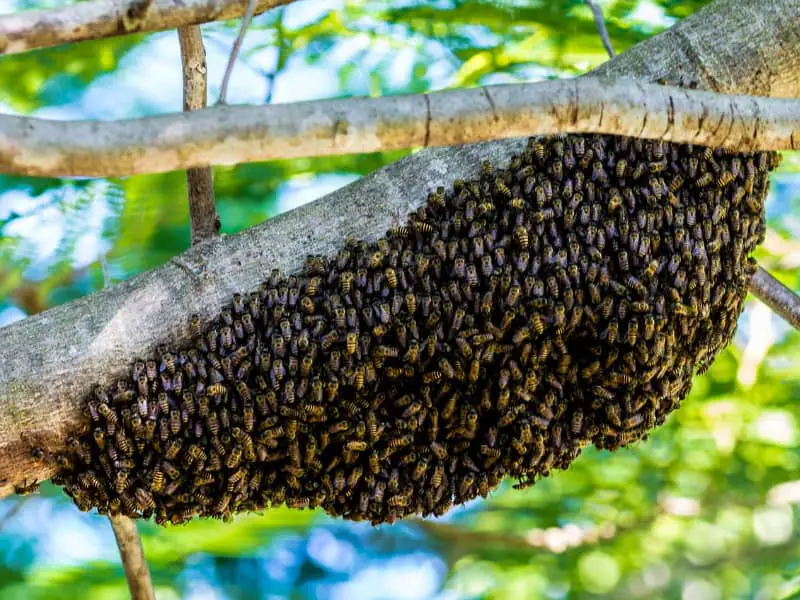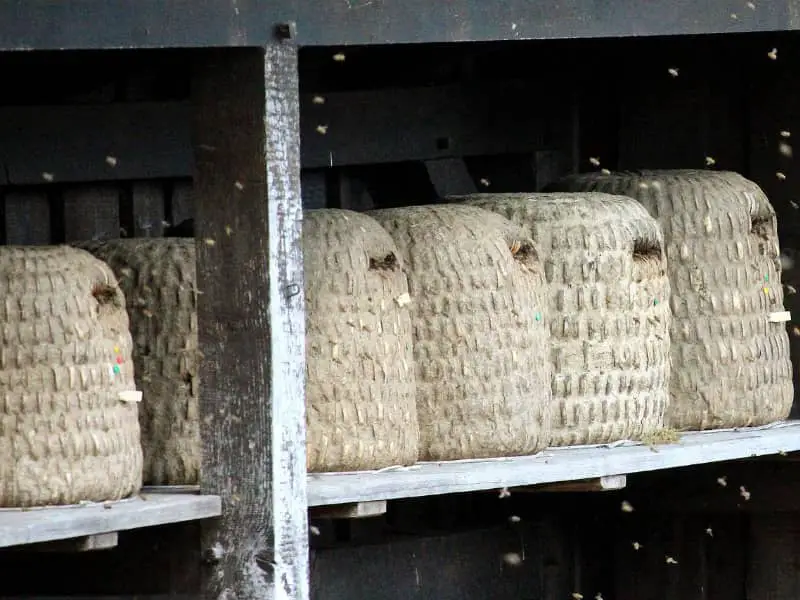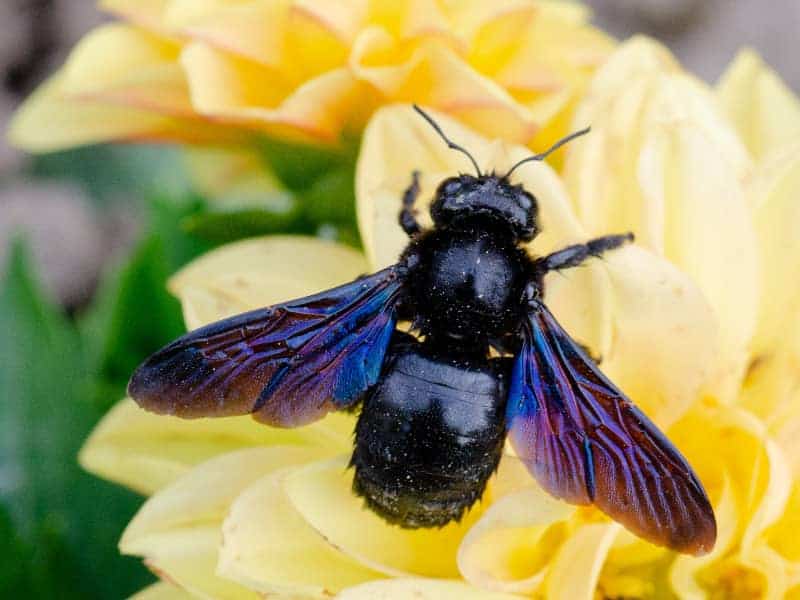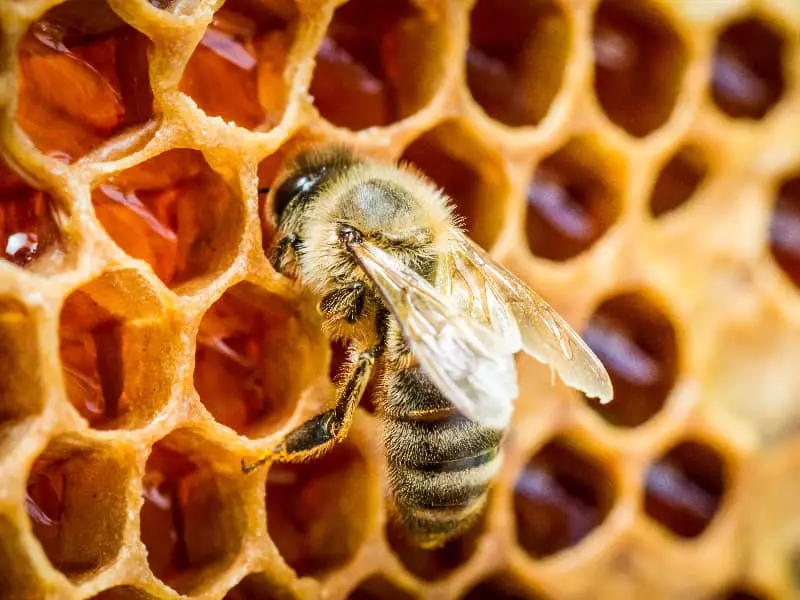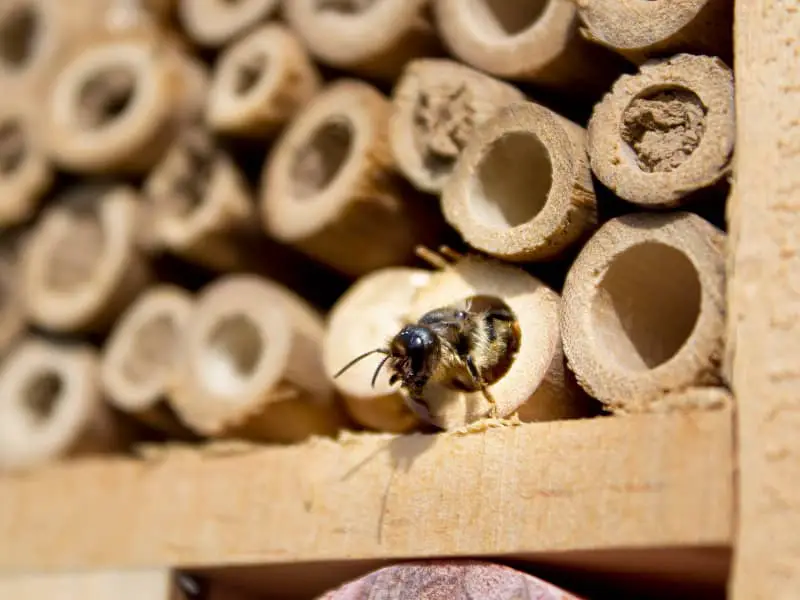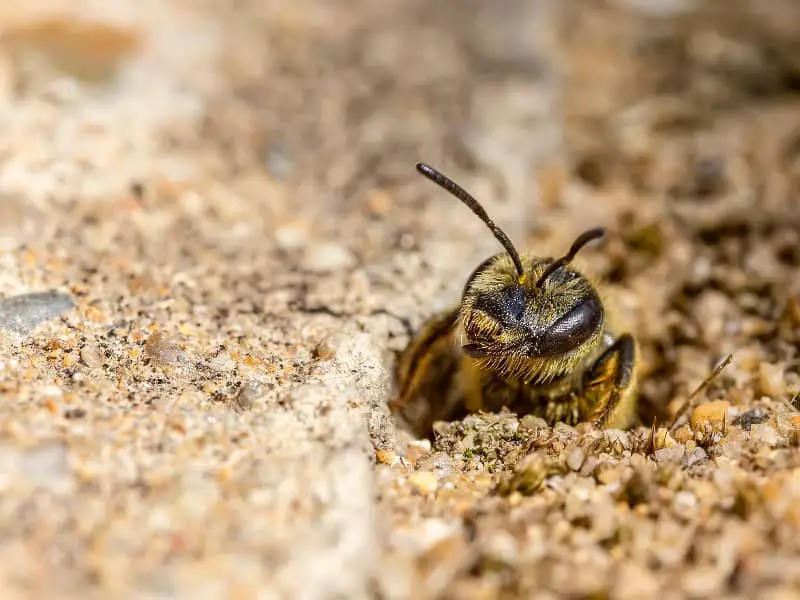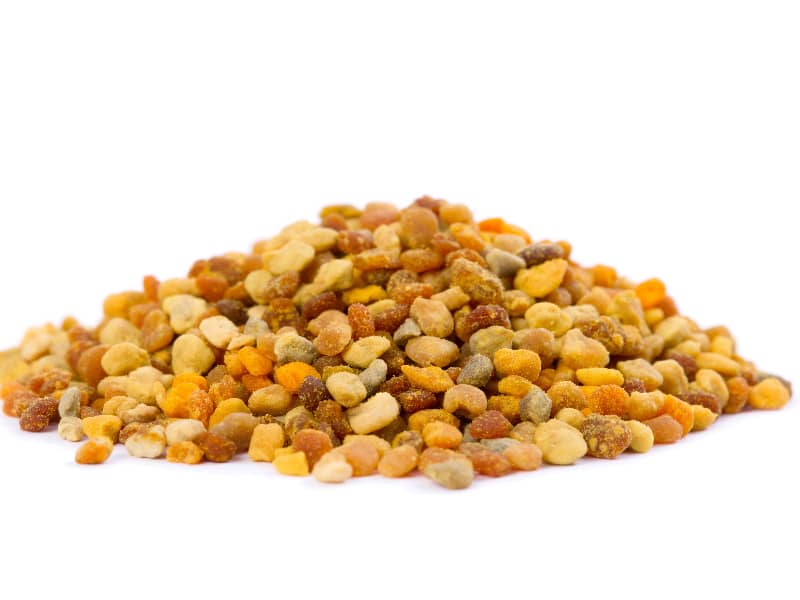
Bees pollen
Bees are truly fascinating creatures. Not only are they responsible for producing the sweet nectar we know as honey, but they also play a crucial role in pollination, which is essential for the growth and spread of plants. One aspect of this amazing process is bee pollen.
What are bees pollen?
Bee pollen are microscopic grains produced by flowers and correspond to the male germ cells of plants. They are rich in proteins, vitamins, minerals and other vital nutrients. When Bees a flower visit, they collect this pollen with their hairy legs and store it in special baskets on their hind legs.
The main function of pollen in nature is to fertilize the female parts of a flower. When a bee flies from one flower to the next, some of the pollen it carries is transferred to the pistils of the next flower, resulting in fertilization.
Why do bees collect pollen?
For bees, pollen is not just a simple substance that they transport from flower to flower. Pollen is an essential food source for bees. The proteins and nutrients they contain are essential for the healthy development of bee larvae.
But how do bees collect this pollen? With their specialized body parts and their ability to detect electric fields generated by flowers, bees can efficiently collect pollen. When visiting a flower, they use their legs to grab the pollen, compress it and pack it into their pollen baskets.
The benefits of bee pollen for humans
Over the centuries, people have valued bee pollen not only for its importance to the ecosystem, but also for its health benefits. Many cultures believe that bee pollen has healing properties.
Scientific studies have shown that bee pollen contains an impressive amount of nutrients. They are rich in antioxidants, which can help prevent cell damage caused by free radicals. Likewise, they are a good source of B vitamins, which support energy metabolism in the body.
There is also evidence that bee pollen can boost immunity and reduce inflammation. Some people use them as a dietary supplement to boost their overall health and prevent disease.
The ecological importance of pollen
Bees Pollen plays a key role in the ecosystem. Without pollen and the process of pollination, many plant species could not survive. If plants are not pollinated, they cannot produce seeds and thus cannot reproduce.
Through pollination, bees contribute to biodiversity. This has a direct impact on our food chain, as many of the fruits, vegetables and nuts we eat depend on pollinating insects, especially bees.
In addition, animals also benefit from this process. Many animal species depend on certain plants that bear fruit through pollination. Without these fruits, some animals could not survive.
How bees distinguish pollen from honey
Many people think of Bees automatically to honeybut it is important to understand the difference between honey and bee pollen. While both products come from bees, they have different functions and histories of origin.
Honey is produced when bees collect nectar from flowers, process it in their stomachs with enzymes, and then store it in honeycombs where it ripens. Honey serves as a source of food for bees, especially during periods when flowers are not in bloom.
Bee pollen, on the other hand, are small beads of collected flower pollen. These pollen are mixed with nectar or honeydew, which makes them sticky and allows the bees to transport them. Unlike honey, which consists mainly of sugar, pollen is a protein-rich food.
The harvesting and processing process of bee pollen
The harvesting of bee pollen is an exciting process. Beekeepers use special pollen traps at the entrances to their hives. These traps are designed to scrape off a small percentage of the pollen grains that the bees carry on their hind legs when they return to the hive.
After harvesting, the pollen grains are dried to remove moisture and extend their shelf life. Some producers further process them by freezing, pasteurizing or grinding them into powder.
Bee pollen in cosmetics
Beyond nutrition, bee pollen has also found its way into the cosmetics industry. Thanks to their nutrient-rich composition, they are often used in skin care products to nourish and revitalize the skin. Some even claim that bee pollen can slow down the aging process by stimulating collagen production in the skin.
- Bienenpollen, die Bienen von Blütenpflanzen sammeln, haben je nach besuchter Pflanze eine andere Farbe, von gelb bis schwarz. Bienen packen sie an ihren Hinterbeinen zu Pellets zusammen und transportieren sie zurück zum Bienenstock.
- Vielfältige Verwendung: Bienenpollengranulat kann direkt verzehrt werden, indem es über Joghurt, Haferbrei, Müsli oder Salate gestreut oder Smoothie-Rezepten, Backwaren, Desserts oder Getränken hinzugefügt wird.
- Authentischer Geschmack: Unser Blütenpollen stammt aus ökologisch reiner und nachhaltig ausgerichteter Imkerei. Er ist getrocknet perfekt zum Verzehr geeignet und enthält keinerlei Zusätze, Konservierungsstoffe oder Aromen.
- Natürliche Herkunft: Unser Bienenpollen stammt aus einem Anbau, bei dem höchste Reinheit im Vordergrund steht, sodass sichergestellt ist, dass jede Zutat den höchsten Qualitätsstandards entspricht.
- Verpflichtung zur Qualität: Wir halten in der gesamten Wertschöpfungskette, vom Anbau bis zur Verpackung, außergewöhnliche Standards ein, um eine gleichbleibende Produktqualität zu gewährleisten.
- BLÜTENPOLLEN VOM BIO IMKER – unsere Pollen werden von einem Bio-Imker schonend & mit viel Wertschätzung für die Natur gewonnen
- LECKERE VIELFALT – die feine Süße eignet sich ideal als Topping in Müslis, Joghurts, Smoothie oder du genießt sie ganz klassisch auf deinem Honigbrot
- SCHONEND GEERNTET & GEPRÜFT - die frisch geernteten Blütenpollen werden schonend getrocknet und in Deutschland von einem externen Labor auf mögliche Rückstände analysiert
- NACHHALTIG VERPACKT - unsere Bio-Pollen sind in einem Glasbehältnis verpackt und mit einem Etikett aus Graspapier bestückt, sicher verstaut in einer stabilen, nachhaltigen Schutverpackung
- WIR ♥ BIENEN- mit jedem Kauf unterstützt du unsere Mission, Bienenprodukte wieder bekannter zu machen. Zudem spenden wir pro Produktverkauf 10 Cent, die Summe wird von uns jeden Monat in ausgewählte Projekte zur Förderung & Schutz der Wild- und Honigbienen investiert - somit trägst du aktiv zum Schutz der Biene bei
- 100% NATÜRLICH: Sie erhalten unsere Blütenpollen aus Wildsammlung in bester Bio-Qualität und ohne jegliche Zusätze.
- LECKERE VIELFALT – die feine Süße eignet sich ideal als Topping in Müslis, Joghurts, Smoothie oder du genießt sie ganz klassisch auf deinem Honigbrot.
- JETZT KAUFEN: Sie wollen unsere Bio Blüten Pollen schnell und zuverlässig zu Ihnen geliefert bekommen - dann drücken Sie auf 'Jetzt kaufen'
The importance of diversity in pollen collection
Bees don't just collect pollen from a single plant species. In fact, the diversity of pollen types collected can have a significant impact on the health and vitality of a hive. A diverse dietary base allows bees to obtain a broader range of nutrients, which is especially important for keeping the hive healthy.
Possible allergies and reactions
While bee pollen can provide numerous health benefits, it is important to know that it also contains allergens. People who are allergic to flower pollen may also be allergic to bee pollen.
It is recommended to perform an allergy test before taking bee pollen as a dietary supplement. Start with a small amount and gradually increase the dose to ensure that no allergic reactions occur.
Dangers for bees and their pollen collection
Unfortunately, bees around the world face threats that affect their ability to collect pollen and pollinate. These threats include pesticides used in agriculture, diseases, parasites and climate change.
Pesticides can directly harm bees or impair their ability to orient themselves, leading to a decline in pollination rates. Habitat loss due to urban development and intensive agriculture also has a direct impact on bee populations.
Protecting bees and ensuring their ability to efficiently collect pollen and pollinate is critical to the balance of our ecosystem. It is our responsibility to be aware of the importance of bees and to take action to protect them.
Conclusion on the subject of bees pollen
Bees pollen are not only a simple product of the diligent work of these remarkable insects, but also a symbol of the deep interconnectedness and mutual relations in the natural ecosystem. Their high nutrient density makes them of great value not only to bees, but also to humans. They provide an abundance of vitamins, proteins and other essential nutrients that are important for the health of bees and humans alike.
Likewise, the use of bee pollen in the cosmetics industry shows that its benefits go far beyond nutrition. Their role in the history and culture of many civilizations underlines the admiration and respect that humanity has for these tiny creatures and their products.
However, bees themselves are much more than mere pollen collectors. They are crucial players in our ecosystem, helping plants to pollinate and thus promoting biodiversity. Without bees, the diversity of our food and our environment would be severely limited.
The deep connection between bees and plants that has developed over the course of evolution serves as a reminder of how intertwined life is on our planet. It reminds us that we all, big and small, play a role in the big picture of things and that each species, whether bees, plants or humans, has its own unique value.
Ultimately, the topic of bees pollen asks us to appreciate nature and its wonders more and to be aware of the importance of protecting and preserving the environment and its inhabitants. It is not only a matter of admiration, but also of the responsibility we have to maintain the balance of our planet.
Author

-
Garden animal - A life with nature
Welcome to my animal blog! My name is Dirk and I am happy to take you on my journey through the fascinating world of animals and gardening.
Born 54 years ago, I have had an insatiable curiosity for the animal world around me since childhood. Although I have moved professionally in other industries, my true passion has always been animals and nature. It is remarkable how a small garden has become such an important part of my life.
Many of my fondest memories are associated with the animals that share our home. Whether it's the curious squirrels that scurry across the trees in the morning, the colorful variety of birds that visit our feeders, or the busy bees and butterflies that pollinate our flowers, every moment with them is invaluable to me.
This blog is my contribution to share my experiences, discoveries and insights with like-minded people. Here I will share stories of unforgettable encounters with animals, give tips on gardening and creating wildlife-friendly habitats, and take you on my journeys through nature.
Thank you so much for being here!
Cordial,
Dirk aka garden animal
Last posts
- 27. February 2024PetsVeganes Hundefutter – Grün und Gesund?
- 18. January 2024ChickensOregano für Hühner
- November 27, 2023HamsterDiurnal hamsters
- November 24, 2023HamsterHamster hammock
Letzte Aktualisierung am 2025-07-05 / Affiliate Links / Bilder von der Amazon Product Advertising API




